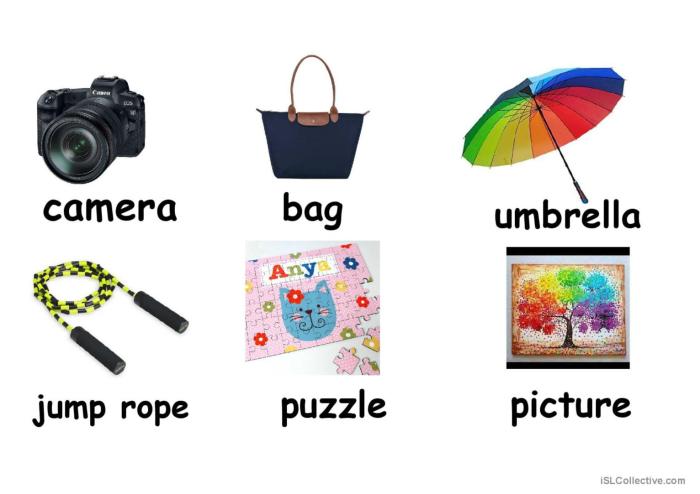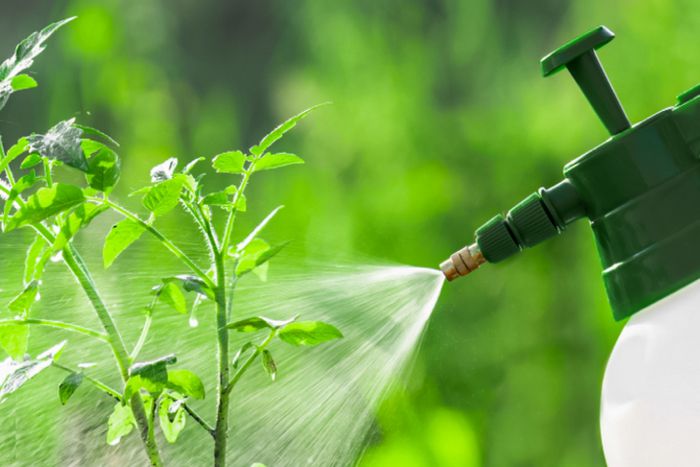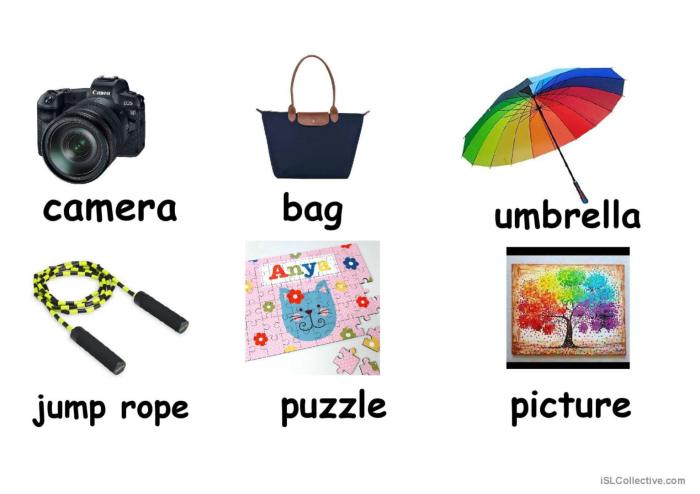What not to clean with all purpose cleaner – What not to clean with all-purpose cleaner? This guide reveals the surfaces and materials that can be damaged by a seemingly universal solution. From delicate wood finishes to sensitive fabrics, improper cleaning can lead to irreversible harm. Understanding which surfaces are best left to specialized cleaners is crucial for maintaining their beauty and longevity.
We’ll explore why all-purpose cleaner is often the wrong choice for certain surfaces, detailing the potential damage and offering safer alternatives. Learn to identify the specific cleaners designed to protect your prized possessions.
Identifying Surfaces to Avoid All-Purpose Cleaner: What Not To Clean With All Purpose Cleaner

All-purpose cleaners are convenient, but not all surfaces are created equal. Using the wrong cleaner can lead to irreversible damage, from faded fabrics to scratched wood finishes. Understanding which surfaces are incompatible with all-purpose cleaners is crucial for maintaining the beauty and longevity of your home. This guide will help you identify these surfaces and the specialized cleaners that are best suited for each.
Surfaces Unsuitable for All-Purpose Cleaners
All-purpose cleaners, while versatile, often contain harsh chemicals that can damage delicate surfaces. Their abrasive nature and strong cleaning agents are not always compatible with the protective finishes and materials of certain items. Knowing which surfaces to avoid will help you prevent costly repairs and maintain the aesthetic appeal of your home.
Wood Furniture
Wood furniture, especially older pieces, often has a protective finish that can be damaged by all-purpose cleaners. The chemicals in these cleaners can strip away the finish, leaving the wood vulnerable to scratches, stains, and moisture damage. Using a specialized wood polish, specifically formulated for the type of wood and finish, will help maintain its integrity and beauty.
The effectiveness of a wood polish is far superior to all-purpose cleaner, as it won’t strip away the finish or leave behind harmful residue.
Marble Countertops
Marble, with its exquisite veining and texture, is a beautiful but delicate material. All-purpose cleaners often contain harsh chemicals that can etch or dull the surface of marble countertops. These chemicals can react with the minerals in the stone, causing discoloration and permanent damage. Using a specialized marble cleaner, formulated for the specific type of stone, will provide gentle cleaning without causing damage.
This is a crucial distinction; specialized marble cleaners are essential to avoid damaging the surface.
Upholstered Furniture
Upholstered furniture, whether it’s a plush sofa or a cozy armchair, is often susceptible to color bleeding and fabric damage if cleaned with an all-purpose cleaner. The harsh chemicals in all-purpose cleaners can cause the dyes in the fabric to run, resulting in unsightly stains and color variations. Furthermore, these cleaners can weaken the fibers, leading to premature wear and tear.
Using an upholstery cleaner, specifically designed for the type of fabric, will gently lift dirt and stains without harming the fibers or causing color damage. The results of using a specialized cleaner are much better than using an all-purpose cleaner.
Fabric Items
Similar to upholstered furniture, other fabric items, such as curtains or rugs, can be easily damaged by all-purpose cleaners. The harsh chemicals can cause the dyes to run, leading to color bleeding or fading. Furthermore, the cleaning agent can damage the fibers, causing the fabric to become brittle or lose its texture. Using a specialized fabric cleaner, specifically formulated for the type of fabric, will effectively clean the surface without causing damage.
These cleaners are specifically formulated to avoid causing damage to delicate fabrics.
Stone Surfaces
Stone surfaces, including granite and slate, require specialized cleaners. All-purpose cleaners may contain ingredients that react with the minerals in the stone, causing etching or discoloration. Using a specialized stone cleaner, tailored to the type of stone, will prevent these issues. The specialized cleaner will maintain the stone’s integrity and appearance.
Table of Surface Types and Cleaners
| Surface Type | Specific Cleaner | Reason for Avoiding All-Purpose Cleaner |
|---|---|---|
| Wood Furniture | Wood Polish | Can strip or damage the wood’s protective finish |
| Marble Countertops | Marble Cleaner | Can damage the surface with harsh chemicals |
| Upholstered Furniture | Upholstery Cleaner | Can cause color bleeding or damage to the fabric |
| Fabric Items | Fabric Cleaner | Can cause color bleeding or damage to the fabric |
| Stone Surfaces (Granite, Slate) | Stone Cleaner | May contain ingredients that react with the minerals, causing etching or discoloration |
Understanding the Potential Damage from All-Purpose Cleaner
All-purpose cleaners, while convenient, can be surprisingly damaging if used improperly. Their broad spectrum of cleaning action often masks the potential harm they can inflict on various surfaces. Understanding the specific risks associated with different materials is crucial to avoid costly repairs and preserve the integrity of your belongings.The active ingredients in all-purpose cleaners are designed to break down dirt and grime.
Avoid using all-purpose cleaner on delicate surfaces like wooden furniture or intricate carvings. It’s also a bad idea to use it on freshly painted exteriors, especially if you’re considering methods like exterior paint spraying vs brushing. Choosing the right technique, like exterior paint spraying vs brushing , can significantly impact the longevity of your paint job. In short, all-purpose cleaner isn’t a universal solution for every cleaning task.
However, these same chemicals can interact negatively with the chemical makeup of certain materials, leading to unintended consequences. The severity of the damage depends on the concentration of the cleaner, the duration of exposure, and the inherent properties of the surface.
Potential Damage to Wood Surfaces
All-purpose cleaners, especially those containing harsh chemicals, can cause bleaching or discoloration of wood. The wood’s natural pigments can be altered, leading to an undesirable color change. Repeated use can also cause the wood’s protective finish to deteriorate, making it more susceptible to damage from moisture and other environmental factors. Avoid using all-purpose cleaners on varnished or lacquered wood, as these finishes can be compromised by the chemicals in the cleaner.
Potential Damage to Metal Surfaces
Certain components in all-purpose cleaners can react with metal, leading to corrosion. This can manifest as rust, pitting, or discoloration. The extent of the damage depends on the type of metal, the concentration of the cleaner, and the length of exposure. Avoid using all-purpose cleaners on delicate metal objects, like silverware or antique items.
Potential Damage to Plastic Surfaces
All-purpose cleaners can cause fading or discoloration of plastic surfaces. The chemicals in the cleaner can interact with the plastic’s pigments, leading to a loss of vibrancy or the development of stains. This is particularly true for colored plastics or those with a delicate finish. Over time, repeated exposure can lead to a degradation of the plastic’s structure.
Table of Potential Effects of All-Purpose Cleaner on Different Materials
| Material | Potential Damage | Explanation |
|---|---|---|
| Wood | Bleaching or discoloration | The chemicals in the cleaner can lighten or change the color of the wood, potentially stripping the finish. |
| Metal | Corrosion | Certain cleaners can cause rust or other forms of corrosion, particularly on exposed metal surfaces. |
| Plastic | Fading or discoloration | The chemicals in the cleaner can damage the plastic’s color or texture, potentially leading to permanent staining. |
| Fabric | Color bleeding or damage | All-purpose cleaners can affect dyes, causing colors to run or fade. |
Alternative Cleaning Solutions for Specific Surfaces

Choosing the right cleaning solution is crucial for maintaining the integrity and beauty of your home’s surfaces. Using an all-purpose cleaner on delicate or specialized surfaces can lead to damage, discoloration, or even permanent harm. This section explores alternative cleaning solutions tailored to specific surface materials, ensuring a safe and effective cleaning experience.
Alternative Cleaners for Stainless Steel
Stainless steel is a popular choice for kitchen appliances and home decor. Proper cleaning is essential to maintaining its shine and preventing rust. Using a specialized stainless steel cleaner is the recommended approach. These cleaners are formulated to cut through grease and grime without harming the metal’s surface. Avoid harsh abrasives or scouring pads, which can scratch the surface and dull its luster.
Alternative Cleaners for Glass
Glass surfaces, from windows to shower doors, require gentle yet effective cleaning. Specialized glass cleaners are designed to remove dirt and streaks without leaving behind residue. These cleaners typically contain a higher concentration of active ingredients compared to all-purpose cleaners, making them more effective at achieving a streak-free shine.
Alternative Cleaners for Wood
Wood surfaces, whether hardwood floors or furniture, require specialized care to prevent damage and maintain their natural beauty. Using the correct cleaning solution is vital for preserving the wood’s integrity. Wood cleaners are specifically formulated to clean and nourish wood without stripping away its natural oils. These cleaners can help maintain the wood’s original luster and protect it from staining.
Alternative Cleaners for Granite
Granite countertops are known for their durability and beauty. However, they can be susceptible to staining and etching if not cleaned properly. Using a specialized granite cleaner helps prevent these issues. These cleaners are specifically formulated to cut through grease and grime without damaging the stone’s surface.
Avoid using all-purpose cleaner on delicate outdoor furniture, like wicker or teak. For those materials, I recommend checking out my guide on how I clean outdoor furniture and areas how i clean outdoor furniture and areas for a gentler approach. It’s crucial to choose the right cleaning method to avoid damaging your investment, so be sure to pick the right products for the job when tackling your outdoor spaces.
Alternative Cleaners for Tile
Tile surfaces, from bathroom walls to kitchen backsplashes, are often exposed to moisture and grime. Using a specialized tile cleaner can help maintain its integrity and appearance. These cleaners are formulated to tackle tough stains and prevent mold and mildew buildup.
Comparison of Specialized Cleaners vs. All-Purpose Cleaners
Specialized cleaners are specifically designed for particular surface materials, ensuring a safe and effective cleaning process. They often contain specific ingredients to tackle the unique properties of each surface, preventing damage and maintaining the material’s integrity. All-purpose cleaners, on the other hand, are designed for a wide range of surfaces, but this broad application can lead to unintended damage.
Using the right cleaner for the job is crucial to avoid problems like discoloration or damage.
Avoid using all-purpose cleaner on delicate surfaces like wooden furniture or painted walls. It’s also a bad idea to use it on things that might be easily damaged, like your prized collection of vintage toys. And, crucially, never use all-purpose cleaner to try and fill in those pesky rat holes in your yard. You might find yourself needing a stronger solution, or a different approach altogether, and you definitely don’t want to risk harming the surrounding landscaping.
Instead, check out this guide on dealing with rat holes in yard for effective and safe methods. Stick to specialized cleaners for those stubborn stains, and remember all-purpose cleaner is best left for general cleaning tasks around the house.
Cost-Effectiveness of Specialized Cleaners
While specialized cleaners may seem more expensive than all-purpose cleaners, the cost-effectiveness often comes into play over time. Specialized cleaners are formulated to effectively clean and maintain the surface’s integrity. This can translate into fewer repairs, less frequent cleaning, and ultimately a lower cost over the life of the surface. All-purpose cleaners, due to their broad use, may not be as effective on certain surfaces, requiring more frequent use and potentially leading to greater damage in the long run.
Alternative Cleaning Solutions Table, What not to clean with all purpose cleaner
| Surface Material | Alternative Cleaner | Application Instructions |
|---|---|---|
| Stainless Steel | Stainless Steel Cleaner | Apply cleaner to a soft cloth and gently wipe the surface. |
| Glass | Glass Cleaner | Spray cleaner onto a cloth and wipe. |
| Wood | Wood Cleaner | Apply cleaner to a soft cloth and gently wipe the surface. |
| Granite | Granite Cleaner | Apply cleaner to a soft cloth and gently wipe the surface. |
| Tile | Tile Cleaner | Apply cleaner to a soft cloth and gently wipe the surface. |
Safety Precautions and Considerations
All-purpose cleaners, while convenient, can pose risks if not used cautiously. Understanding the safety precautions associated with their use, especially on sensitive surfaces, is crucial for preventing damage and ensuring a safe cleaning environment. Proper dilution techniques, ventilation strategies, and awareness of potential health hazards are all essential components of a safe cleaning routine.Using all-purpose cleaners safely involves more than just spraying and wiping.
It demands attention to detail, understanding of surface sensitivities, and mindful application. This section will detail the necessary precautions to avoid mishaps and ensure a healthy cleaning process.
Dilution Techniques for Specific Cleaning Tasks
Proper dilution is key to effective and safe cleaning. Over-concentration can damage surfaces and harm your health. Always follow the manufacturer’s instructions on the product label. For example, a cleaner designed for general use might require a 1:10 dilution (one part cleaner to ten parts water) for delicate surfaces. If the label indicates a different dilution ratio, follow that ratio strictly.
Always test the diluted solution in an inconspicuous area before applying it to the entire surface to ensure it won’t cause discoloration or damage.
Importance of Ventilation
Adequate ventilation is vital when using any cleaning product, including all-purpose cleaners. Strong odors and fumes can irritate the respiratory system. Open windows and doors, or use a fan to circulate air, especially in confined spaces. Ensure good airflow to prevent the buildup of potentially harmful vapors.
Potential Health Hazards and Mitigation Strategies
All-purpose cleaners often contain chemicals that can cause skin irritation, eye damage, or respiratory problems if mishandled. Always wear appropriate personal protective equipment (PPE), such as gloves and eye protection, when using these products. If you experience any adverse reactions, discontinue use immediately and seek medical attention. Symptoms such as coughing, sneezing, or skin rash might indicate an allergic reaction or sensitivity to the cleaner’s components.
Proper ventilation and careful handling are crucial in minimizing health risks. Read the safety data sheet (SDS) provided by the manufacturer to understand the potential hazards of the specific cleaner you are using.
Safety Precautions Summary Table
| Material | Safety Precautions | Specific Instructions |
|---|---|---|
| Wood | Avoid spraying directly onto the wood. | Use a damp cloth and wipe the surface gently. Test in an inconspicuous area first. |
| Fabric | Test in an inconspicuous area first. | Use a small amount of cleaner and a soft cloth. Work in small sections. |
| Granite | Dilute the cleaner significantly. | Use a soft cloth or sponge, and avoid harsh scrubbing. |
| Marble | Dilute the cleaner significantly. | Use a soft cloth and wipe gently in the direction of the stone’s grain. |
| Painted Walls | Test in an inconspicuous area first. | Use a damp cloth and wipe gently. |
Conclusive Thoughts
In conclusion, while all-purpose cleaner might seem convenient, it’s essential to recognize its limitations. Choosing the right cleaning solution for each surface is key to preserving its beauty and preventing costly repairs. By understanding the potential damage and exploring specialized alternatives, you can confidently keep your home pristine without compromising its integrity.






